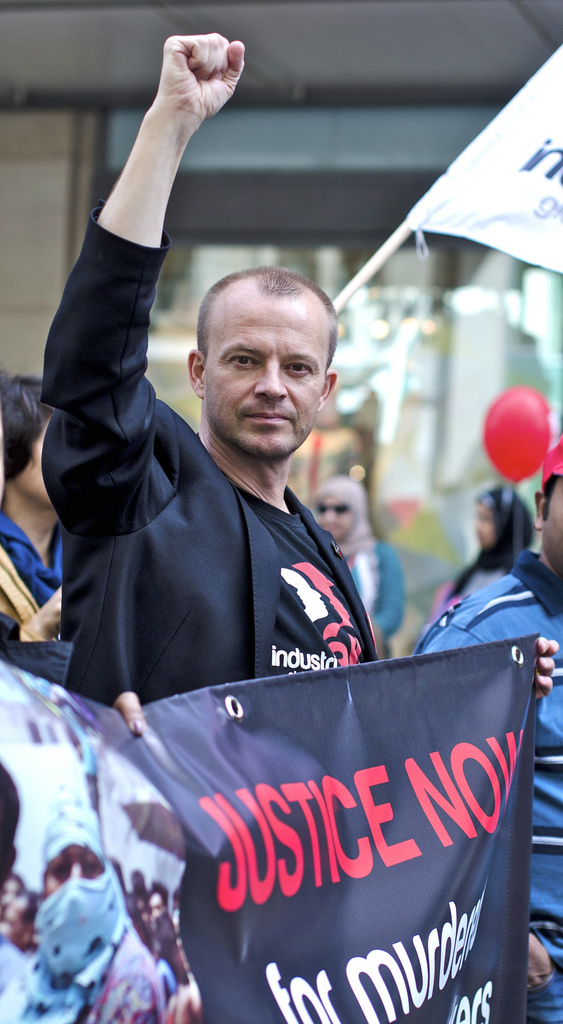26 September, 2014IndustriALL Global Union’s global action day on 7 October is approaching. But the struggle against precarious work continues all around the year. Check out our latest publication Negotiating Security for inspiration in collective bargaining.
Unions around the world are again mobilizing their members on the Word Day of Decent Work on 7 October. As usual, they will often combine our global message with their domestic demands. We will see colourful actions from all parts of the world.
But the campaign to STOP Precarious work is not only about one day. The IndustriALL Global Union family continues its struggle on all continents every day throughout the year – see our campaign page for continuous news on action and victories.
IndustriALL supports its affiliates in their fight to limit precarious work through legislation and collective bargaining. To make it concrete, we published in June 2014 a new guidebook entitled Negotiating Security – Trade union bargaining strategies against precarious work.
Collective bargaining plays a crucial role in limiting precarious employment and improving conditions for temporary, part-time and agency workers. Negotiating Security gives examples of creative and progressive agreements. Here are some of them.
At Bridgestone, USW in the US, SUTNA in Argentina and the Sao Paulo Rubber Workers’ Union have achieved a provision in their collective agreements that regular maintenance operations related to production will be carried out by directly hired staff.
The Sao Paulo union has furthermore agreed with Bridgestone, Pirelli and Goodyear that temporary workers should not represent more than 5 per cent of the workforce in production. In Canada, USW members at Rio Tinto in Quebec reached a cap of 10-15 per cent for outsourced workers.
South African NUMSA has achieved limits for the use of temporary workforce in the metal industry agreements 2014 and in 2011, when it was agreed that workers could not be employed through labour brokers for longer than 4 months. In some Australian and Filipino accords, a fixed-term worker becomes permanent after 12 months.
IndustriALL affiliates are in constant battles to prevent more outsourcing like the UWUA striking two months in the USA earlier this year, or converting precarious jobs to regular employment like SUTIDS in Senegal.
Equal pay and benefits have been achieved in a number of agreements by Germany’s IG Metall, Australia’s AMWU, South Africa’s NUMSA and unions in Mauritius.
IndustriALL is also looking at global agreements to limit precarious work. The strongest text so far is the “Temporary Work Charter for the Volkswagen Group” signed in November 2012 by IndustriALL, the management and the European and World Works Councils. The Charter limits temporary work to 5 per cent of the workforce and guarantees equal pay and equal treatment.
But now, prepare your banners for 7 October. And before that, help us reach 1 million pairs of hands in our Thunderclap at https://www.thunderclap.it/projects/16472-stop-precarious-work!
Jyrki Raina
General Secretary
